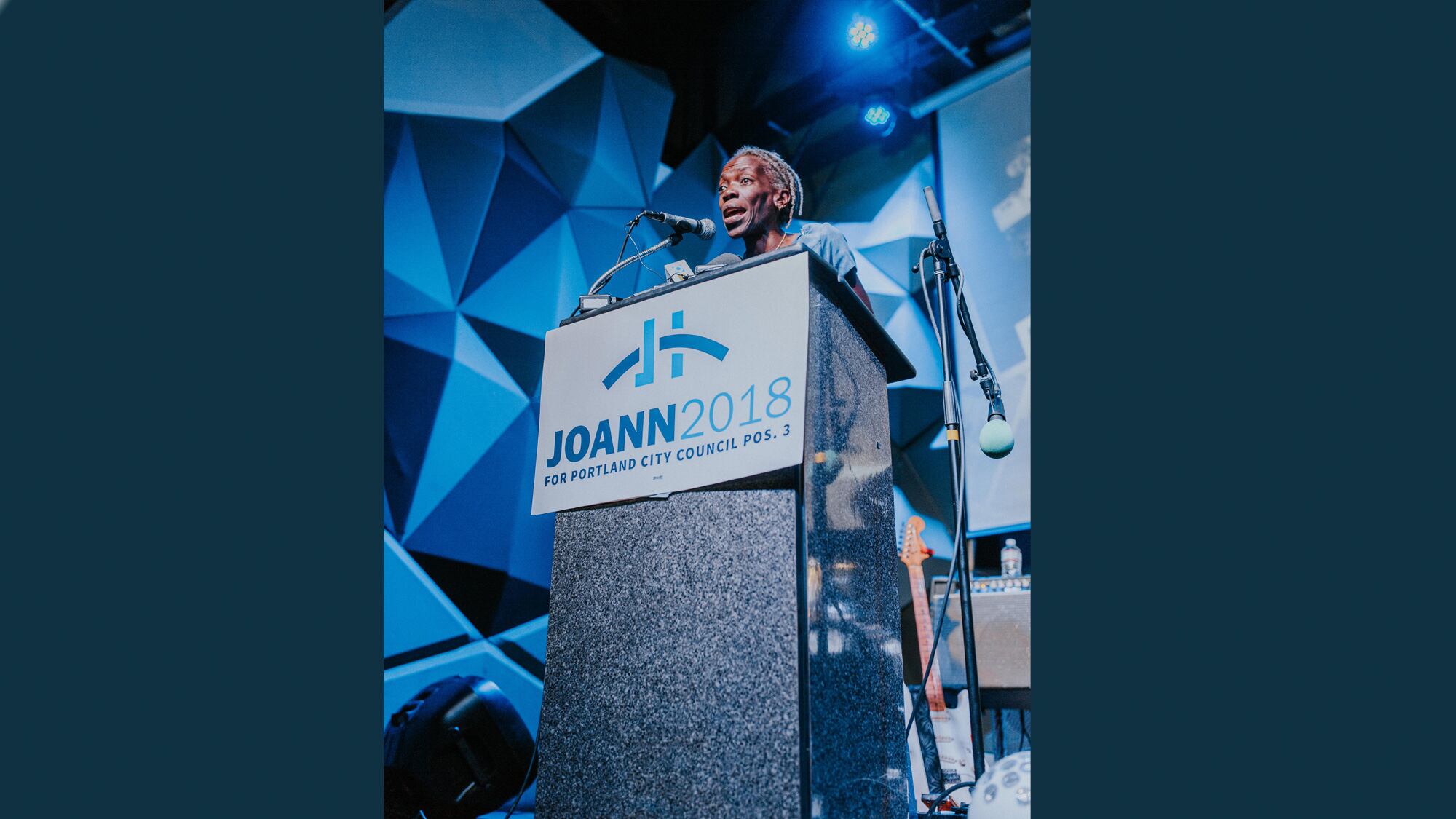On Tuesday, Jo Ann Hardesty became the first black woman elected to Portland City Council. Today, she arrived in City Hall—to tell Mayor Ted Wheeler that his plan to restrict warring protesters runs the risk of being unequally enforced against people of color.
"I believe the ordinance is premature," Hardesty tells WW. She says the city should wait for the results of an investigation into why police deployed riot control agents, including flash-bang explosives, into a crowd of antifascist protesters on Aug. 4, injuring at least two people.
"Of course I'm very, very concerned about restricting anybody's free speech rights," she says. "I will remind the city council we have a legacy of aggressive police action in some communities," she says. "We see how police show up when white women protest and when people of color protest."
Wheeler ordinance is designed to quash the rolling street brawls between right-wing marchers and antifascists. It has the backing of Police Chief Danielle Outlaw, who says it will prevent officers from having to use force on protesters who fight. Civil rights watchdogs like the American Civil Liberties Union say it's unconstitutional.
Read our cover story on Chief Outlaw and the mayor's plan to control protests.
Hardesty will be testifying before the council to voice her reservations about the proposal. Oregon Public Broadcasting first reported on her arrival to testify.
Hardesty points to the differences in the police presence at the Women's March and Portland's Resistance marches that occurred around the same time in January 2017.
"Police showed up in riot gear versus showing up in pussy hats," she says. "It's a totally different presence."
UPDATE, 4 pm: Hardesty pulled no punches in her testimony to City Council. As Outlaw and other police command staff looked on, Hardesty said that police had not told the truth about why they used force on antifascist protesters on Aug. 4.
"We don't all experience the police the same way," Hardesty said. "We cannot have a police force for white people, and then a police force for everybody else."
Hardesty expressed faith in Outlaw—the first black woman to run the Police Bureau—but warned that giving police greater control over protests was a mistake.
"I want you to know that I trust Chief Outlaw," she said. "I believe she has built a good team. But she is absolutely mistaken that we should give the police chief the power to decide who protests and how."

